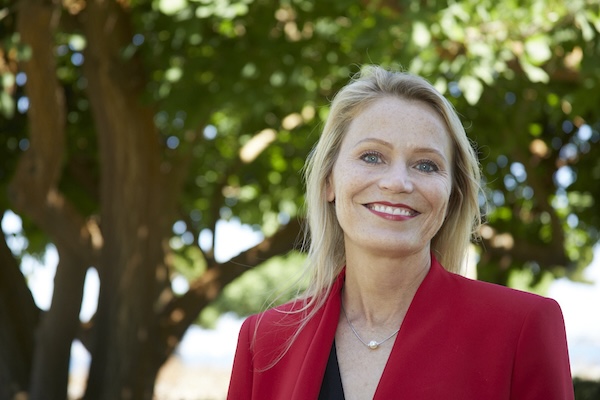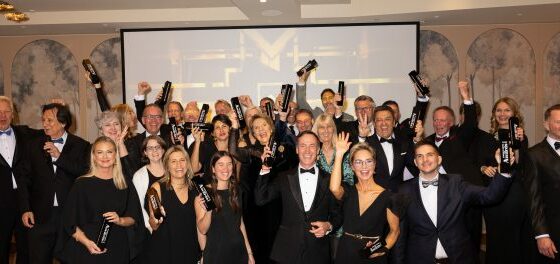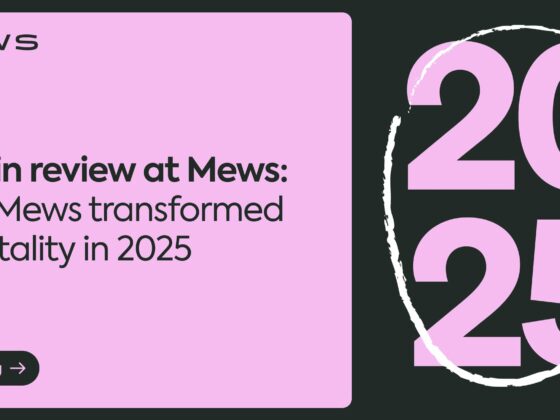Kristie Goshow, the chief commercial officer of hotel investment dynamo KSL Resorts, has seen a lot and been through a lot. In a career that has already spanned more than 20 years, she has held positions with some of the hospitality industry’s most formidable names and brands, including Viceroy Hotel Group, Preferred Hotels & Resorts and Jumeirah Group.
Her current responsibilities at KSL are extensive and broad, focused on brand development, marketing and sales demand creation, along with guest experience delivery. If that wasn’t enough, she also plays an active role in the recruitment, training and development of talent.
It’s no surprise, then, that in her spare time, she can be found trying to conquer the vast trails of Big Bear Mountain in California.
Goshow is also a strong advocate of women, especially within the executive ranks of the hotel industry. In this Q&A with HOTELS, she delves into the myriad topics and examples of some of the challenges facing women amid the hospitality ranks, while also offering fresh perspective on how to overcome these headwinds. And, as a seasoned CCO, we get her takes on the biggest trends and topics currently facing and impacting the hotel industry.
HOTELS: How much improvement has there been in the hiring and advancement of women within the hospitality industry? What needs to improve?
Goshow: This is a straightforward question that necessitates a very complex response. I do see improvement; I am living proof of that. Many prominent hospitality brands have made meaningful strides in their female leadership quotient across multiple disciplines, including Marriott and Accor, which lead the way with women comprising 40% and more than 50% of their core leadership teams, respectively. Most importantly, these brands are creating momentum for change throughout the industry. I recently attended an industry event where 80% of chief commercial officers in attendance were female.
Our industry has typically demonstrated a reasonable gender balance at the DOSM and VP S&M levels. With the growing interdependence between sales, marketing and revenue strategy driven in part by consumer buying behaviors and technological advancement, we have witnessed the evolution of women into the role of a chief commercial officer.
I have long believed we should hire candidates based solely on their capability to successfully perform a role regardless of gender, race or religion. On this basis, I do not support positive discrimination programs that force quotas. Simply put, each person sitting at the table of a boardroom should be there based on merit, contribution and ability to add value. There is no pride to be found in a “forced appointment,” and, frankly, doing so only undermines those who have ascended through sheer hard work and genuine achievement.
We must acknowledge basic human facts. Some genuine differences existing between men and women can influence and interrupt both their availability to participate in the workforce at a senior level and their opportunities for advancement. Ultimately, it’s a numbers game. If we don’t have female players in the talent pool to hire from, the composition of our C-suite will continue to be challenged.
HOTELS: You lay out some striking examples and reasons for what potentially is holding women down and out of higher achievement in the workforce. What are they?
Goshow: 1. Men can’t procreate. And so, the first blow to our population of hospitality talent is felt. Moreover, significantly more women than men will choose to withdraw from the workplace following their maternity leave to raise their children. According to an article published by the Mayo Clinic in January 2021, more than 50% of women return to work after their maternity leave, which implies that just under 50% don’t.
2. Menopause derailment issues are real. The 2023 research conducted by the Korn Ferry Institute explored the magnitude of menopausal impact on the female workforce, stating that approximately one in four women has quit her job or is considering it, and 44% of those women are senior leaders or senior executives. While this statement is not specific to hospitality, it is indicative.
3. Ageism across genders is not equal. Aging male leaders are perceived to bring wisdom, confidence and clarity. Aging female leaders are perceived to offer less relevant value and be more challenging to manage. In short, women are judged differently from men at every age. A Bureau of U.S. Labor Statistics report showed that women make up 51.2% of the hospitality workforce, but only 30% of the sector’s leaders. It should not surprise anyone.

HOTELS: Traditional roles for women in hospitality have been in areas such as marketing, design, HR or housekeeping. Other areas such as development carry “old boys” mentalities. How can recruiters and boards be more inclusive and cognizant across disciplines outside the perceived traditional disciplines?
Goshow: Much has changed. While I agree disciplines such as hotel development are often dominated by male leaders, a glance across the leadership teams at multiple brands will reveal a prominence of women as CFOs, general counsel, chief strategy officers, corporate affairs and chief customer officers. Unfortunately, we continue to be unrepresented in the “big chair” as CEO.
Our traditional roles resulted from female stereotypes “mapping” us to disciplines defined as more caring, creative and (dare I say it) less academic. As our societies continue to battle the growing epidemic of loneliness and mental health issues, what was once considered our weakness is potentially becoming our superpower. Empathy, a sense of belonging and resilience are critical capabilities that potentially define many companies’ health and future success worldwide. As women, we are well-positioned to deliver on all three.
The flourishing number of high-profile, highly engaged female communities, such as ForWard from the AHLA, CHIEF, Women Leading Travel & Hospitality, Women in Travel Thrive, Hertelier, TIEWN & BLLA, Women in Hospitality Industry Leadership Alliance, and many others serve as incredible resources for executive recruiters. Many leading names in hospitality recruitment are already actively involved, leveraging networking opportunities and learning more about the needs, dreams, hopes and desires of female leaders.
Recruiters should not, however, underestimate their role and responsibility in educating their clients to value “potential” in equal parts to “experience” and challenge themselves to unearth the leader “in waiting.” I consider myself relatively well-known in the industry, yet I still encounter executive recruiters asking, “How is it our paths have never crossed before?” My answer: “That’s because you weren’t looking for someone like me, and I am typically hidden behind someone you do recognize.”
As a perennial marketer, I would encourage the recruitment community and company boards to design their leadership go-to-market searches using a marketing playbook; define their audience based on behavioral insight, craft their value proposition with relevance on time; and communicate with an audience of one mindset. Predictive tools and generative AI are ready and waiting to assist.
HOTELS: It’s 2024. When will “women in hospitality” features cease being written because the industry has reached a point where gender doesn’t matter?
Goshow: The answer is probably when our boards and executive leadership teams look more like our guests and more women have ascended to the CEO role. Until then, let’s concentrate our efforts on “all people in hospitality” and focus on why we do what we do: making lives better through excellent service, relevant products, rewarding careers and bountiful investor returns.
HOTELS: What key trends or issues should we be paying attention to in your specific field, both near and long term?
Goshow: AI, now! There’s no denying its value and potential impact on our business performance.
We must design our teams for agility and resilience. The pace of change in pop culture influences how buyers consume brands, their expectations of us, the level of empowerment we share with our consumers and the tools we provide to them. Perhaps add a futurist or two to the staff roster and prepare the business ahead of time.
Traditional segmentation died long ago. AI will help us navigate towards a world where “my” brand engagement experience is vastly different from the next consumer because it has been designed just for me. I shouldn’t see the same website content or copy as you, nor should I see the same brand social posts as you. My journey with a brand should unfold with me as I journey with it. I am not a segment, a micro audience or a target group. I am an audience of one. Consumers want more skin in the game. Taylor Swift has taught us many lessons. Perhaps most glaring is the degree of love she engenders from her fans. Authentic hospitality can change lives, and it should always make them better. We must let our guests become a more meaningful part of our brand story, so they want to dress like us, sound like us and be like us. I have long believed that loyalty programs should reward loyalists with real currency through brand ownership–shares or dividends that recognize their contribution to a hotel company’s growth. If REI can make it work, why can’t we? (Yes, I know it isn’t easy.)
Anything and everything is an inventory to be revenue managed. We know this, but we are slow to embrace it. Our industry must prioritize investments in technology and skill sets to unlock future revenue opportunities. I applaud the fast-food chain Wendy’s recent effort to introduce so-called “dynamic” pricing. While the backlash was severe, the lodging industry is well positioned to leverage its significant learnings on rooms revenue strategy and attribute-based pricing to address every single aspect of the hotel estate.
Our obsession with “hospitality experience” stifles potential. Our ability to navigate growth opportunities, recognize signals and reframe challenges will require fresh perspectives garnered from outside the industry. Our typical gatekeeper mentality does not serve us well. It’s time to hire broadly and boldly.









